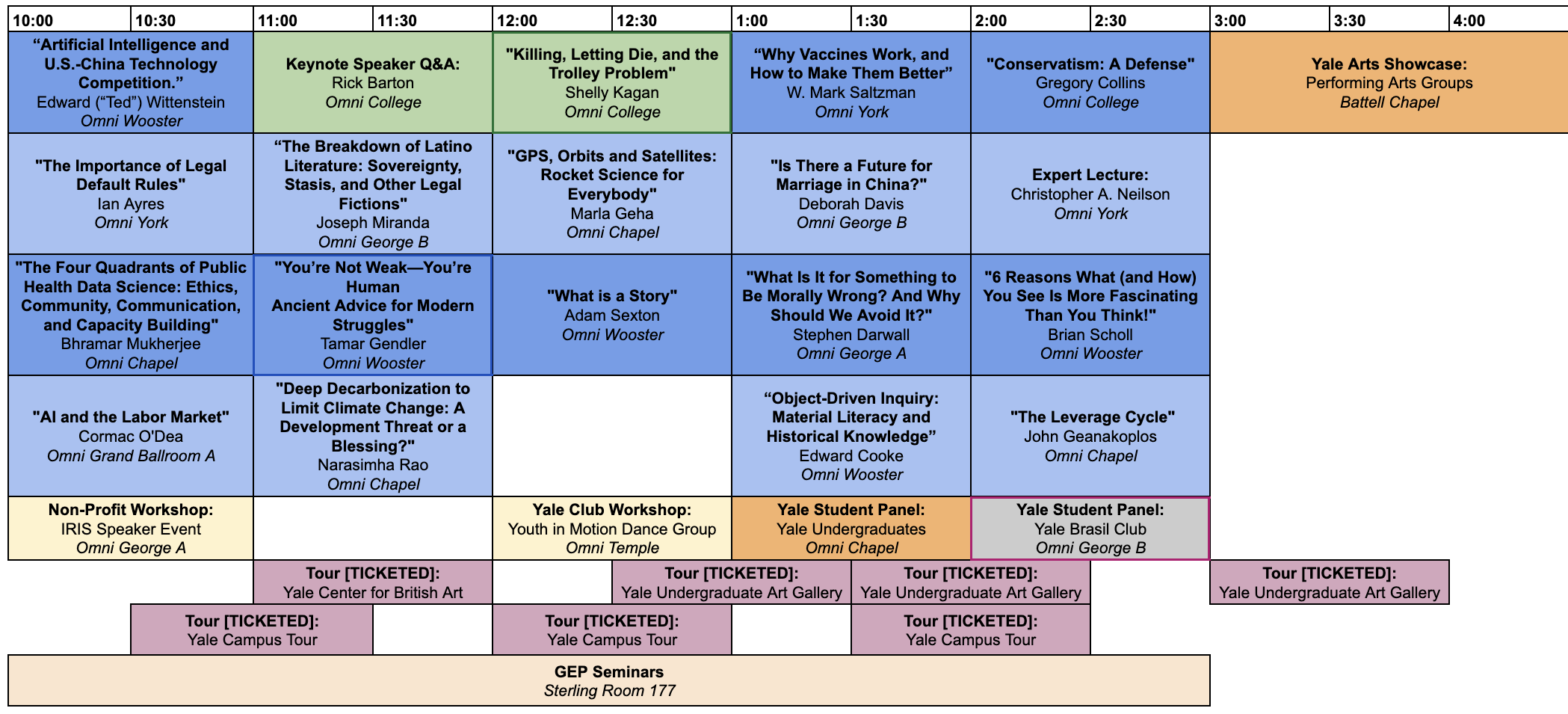Yale Day (YMUN LII)
Yale Day, one of YMUN’s most beloved and important traditions, offers delegates the opportunity to learn from some of Yale's most distinguished faculty, get to know the school, and meet current Yale students. Yale Day takes place during the morning and early afternoon on Friday.
YMUN LII’s Yale Day Schedule is available below! Subject to change.
Ticketed Events
Most Yale Day events are first-come-first-served, though some require tickets to attend. Tickets are free, and you may reserve up to 5 tickets at once. There are a limited number of tickets.

